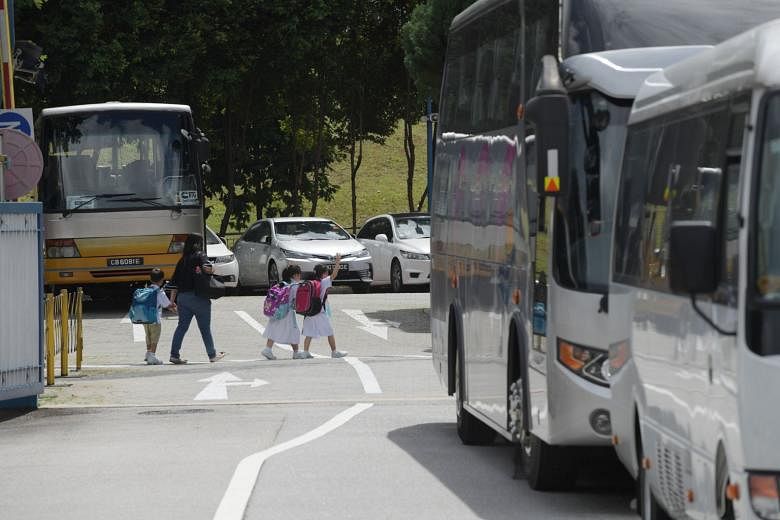SINGAPORE - Smart technology is being introduced gradually in buses ferrying schoolchildren from 2020, a move that will allow parents to make e-payments and communicate more easily with the driver, who will also know for sure that all the kids have boarded the bus before moving off.
This smart bus fleet management system, which is being developed by the Singapore School and Private Hire Bus Owners' Association, will be installed in at least 800 of its members' buses by 2022.
Smaller operators with five or fewer buses will get priority, its president, Mr Phillip Peh, told The Straits Times on Wednesday (Jan 22).
There are more than 1,400 such companies operating a total of over 2,100 buses in the association.
It is not known which schools will be involved yet as a single school may be served by more than one operator.
Collectively, the association's members serve about half the primary and secondary schools in Singapore.
The "smart" move is "part of a push towards digitalising the bus transport industry", which involves a lot of manual work, Mr Peh said.
For instance, if a bus en route to pick up students breaks down, the current modus operandi is for its operator to call and inform each parent about the delay, he added.
With the new system and accompanying mobile app, the driver and operator just have to send out a group message to parents.
Similarly, the parent of a sick child can use the app to inform the driver.
Parents can also track their children's bus via GPS and be notified when they have arrived at school or reached home.
EZ-Link has partnered the association to enable e-payments for parents via an e-wallet app.
This would be more efficient than the cash or cheque collection now, which Mr Peh said can be complicated by accounting errors or mishandling of money by the children. Parents may also be able to opt for a Giro transfer if they wish.
At the same time, each bus will be fitted with an ez-link card reader for students to tap their ez-link cards to record they have boarded the bus. No money will be deducted from their cards.
The project, including software development and hardware installation, is estimated to cost about $7 million, funded jointly by Enterprise Singapore - which supports innovation by small and medium-sized enterprises - and the association.
Upgrading each bus is estimated to cost between $4,000 and $6,000 but up to 70 per cent of it will be subsidised, said Mr Peh.
Some parents have expressed concerns that the upgrading costs may drive up school bus fees.


